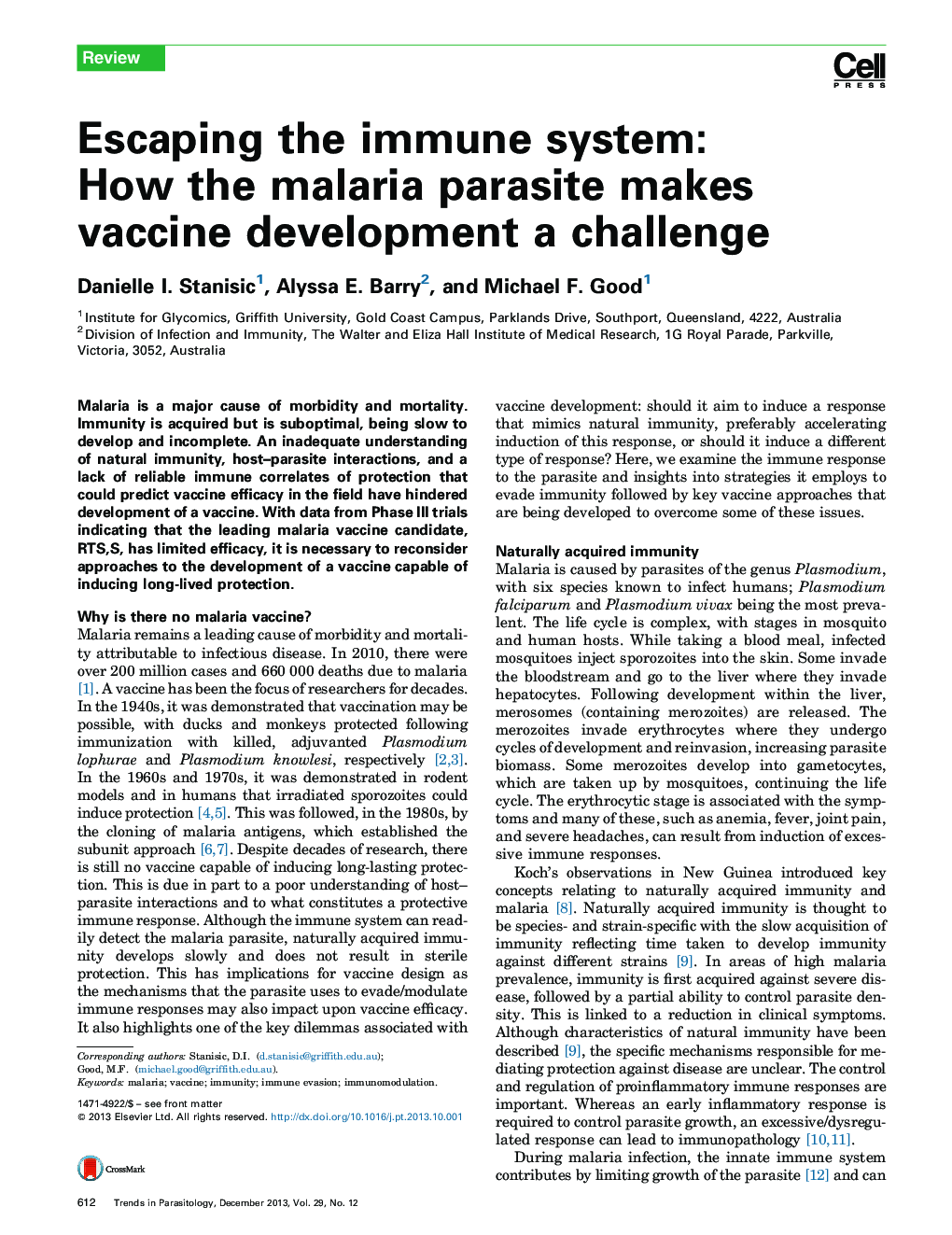| Article ID | Journal | Published Year | Pages | File Type |
|---|---|---|---|---|
| 3423321 | Trends in Parasitology | 2013 | 11 Pages |
•Immunity against the malaria parasite is suboptimal.•Knowledge of antimalaria immunity and host–parasite interactions is incomplete.•The malaria parasite is able to evade and modulate the immune response.•Current malaria vaccines are unable to induce robust, long-lived protection.•Insights into how the parasite evades immunity will inform vaccine development.
Malaria is a major cause of morbidity and mortality. Immunity is acquired but is suboptimal, being slow to develop and incomplete. An inadequate understanding of natural immunity, host–parasite interactions, and a lack of reliable immune correlates of protection that could predict vaccine efficacy in the field have hindered development of a vaccine. With data from Phase III trials indicating that the leading malaria vaccine candidate, RTS,S, has limited efficacy, it is necessary to reconsider approaches to the development of a vaccine capable of inducing long-lived protection.
